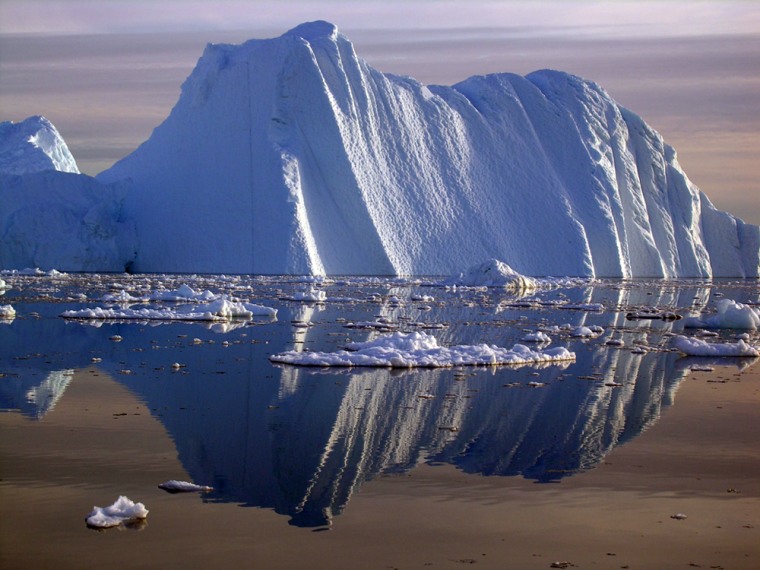Greenland’s massive ice sheet is melting much more quickly than scientists had estimated as recently as last year, according to research published on Wednesday.
An analysis of satellite observations shows the rate of ice loss increased by 2.5 times between the periods April 2002 to April 2004 and May 2004 to April 2006, most of it in southern Greenland.
The researchers calculated that Greenland lost roughly 164 cubic miles of ice from April 2004 to April 2006 — more than the volume of water in Lake Erie.
“There is an increase in mass loss and it is significant,” said study co-author Isabella Velicogna, of the University of Colorado.
'Very strong acceleration'
The findings, based on data from the Gravity Recovery and Climate Experiment (GRACE) satellite and published in the latest issue of the journal Nature, follow a study published last August that found Greenland had lost 57 cubic miles of ice annually from 2002 to 2005.
The analysis by Velicogna and her colleague John Wahr, which looked at data all the way through April 2006, shows the accelerated rate of loss is almost entirely in southern Greenland.
“It was losing quite a bit of mass before 2004 but there is a very strong acceleration, which means things are changing,” said Velicogna. “It is more than we have been observing in the last century.”
She noted that other researchers have found that temperatures in southern Greenland have risen by about 4.4 degrees Fahrenheit in the past two decades.
Many scientists fear that manmade emissions of greenhouse gases like carbon dioxide are behind warming temperatures around the globe.
Greenland harbors about 10 percent of the world's freshwater in its ice sheet, which is up to two miles thick in places. It is so huge that if it melted entirely sea levels across the world would rise by about 20 feet, Tavi Murray of the University of Wales in Swansea said in a commentary on the research.
Murray believes the GRACE results could help scientists re-evaluate the rates of loss that can be expected from global warming.
Cooling in Europe?
“Uncertainties remain, but the GRACE results provide one of the best estimates of overall mass balance of the ice sheet,” he added.
Some scientists also fear that if Greenland released large amounts of freshwater that could weaken the counterclockwise flow of the North Atlantic Current. In turn, that would lower water and wind temperatures and could trigger sudden cooling events in northern Europe.
In March 2006, Velicogna and Wahr used GRACE to determine that Antarctica's ice sheet — which holds 70 percent of Earth's freshwater — lost up to 36 cubic miles of ice annually from April 2002 to August 2005.
